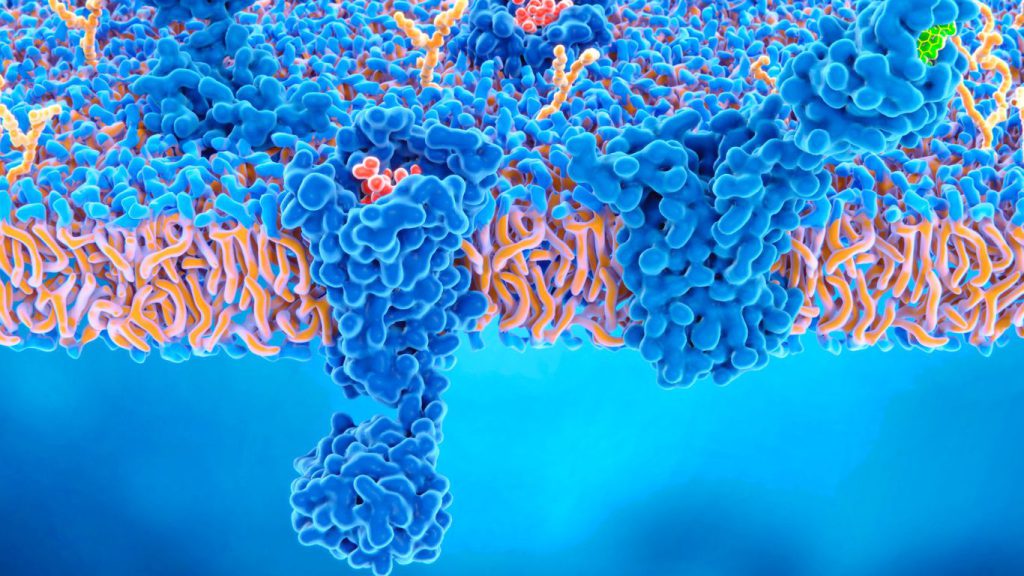Cannabis, also known as Marijuana, is a plant known for its medicinal properties and in recent years it has gained loads of attention for its role in cancer treatment. Traditional cancer treatments come with limitations and uncomfortable side effects. Marijuana has shown promising results in improving the quality of life for individuals living with cancer, helping to combat some of these side effects.
In this blog post, we are going to explore the role of cannabis in cancer treatment, discussing the history of using cannabis medicinally, how it interacts with the body’s endocannabinoid system, and the potential benefits in the role of cannabis in cancer treatment.
Understanding Cancer and Current Treatment Approaches
Cancer is a prevalent global health issue, with millions of new cases diagnosed every year. This complex disease is characterised by uncontrolled growth and division of abnormal cells in the body. It affects various organs and systems in the body, and can spread uncontrollably to other areas than where it started, if not caught early.
The primary treatment options for cancer include surgery, chemotherapy, and radiation therapy. Surgery involves the removal of tumours and affected tissues, chemotherapy uses powerful drugs to kill cancer cells, and radiation therapy uses high-energy radiation to destroy cancer cells and shrink tumours.
Cancer treatments have improved significantly over the years, but they come with limitations and side effects. Surgery can be an invasive treatment, and it isn’t always an option for all types or stages of cancer. Chemotherapy causes a variety of side effects such as nausea, vomiting, hair loss, fatigue and weakened immune system. Radiation can lead to skin reactions and potential long-term complications.
Exploring alternative treatment options such as cannabis, can provide additional therapeutic benefits, and help to manage or minimise the effects associated with traditional approaches to fighting cancer.

Marijuana: An Ancient Medicinal Herb
Cannabis has a long history being used medicinally for thousands of years already. The first medicinal use of cannabis dates back to 400 BC. Marijuana was recognised by ancient Egyptians, Greeks, and the Chinese for its therapeutic properties. It was used to treat a variety of ailments such as pain, inflammation, gastrointestinal disorders, and even psychological conditions.
Cannabis contains numerous chemical compounds, known as cannabinoids. The most well-known cannabinoids are delta-9-tetrahydrocannabinol (THC) and cannabidiol (CBD). THC is responsible for the psychoactive effects of cannabis and has shown potential in pain relief and appetite stimulation. CBD, has no psychoactive effects and has potential for anti-inflammatory and anti-anxiety properties. There are many other cannabinoids present in cannabis.
There are a variety of different strains of cannabis, which have different ratios of THC and CBD. The most common strains include Sativa, Indica, and Hybrid varieties. It can be consumed in various forms including dried flowers which can be smoked or vaporised, cannabis oils that can be consumed orally or used topically, and edibles such as baked goods and beverages infused with cannabis extracts. There are also a variety of tinctures or creams and balms.
The variety available of different strains and administration methods allows for flexibility and provides a holistic approach for almost everyone to enjoy based on their personal preferences.

The Endocannabinoid System & Cannabis
The endocannabinoid system (ECS) is made up of a complex network of receptors, endocannabinoids (cannabinoids already produced in the body), and enzymes. It plays a vital role in various physiological processes such as pain sensation, immune response, inflammation, mood, appetite, and cell growth. There are two main receptors namely CB1 and CB2, which are found throughout the body – including in the central nervous system, immune cells, and peripheral tissues.
The ECS acts as a modulator within the body, monitoring and adjusting various bodily functions to maintain balance. When there is an imbalance, the ECS helps to restore equilibrium. If there is excessive pain or inflammation, the ECS is activated to reduce pain signals or inflammation responses. It plays a crucial role in overall well-being.
Cannabinoids found in cannabis such as THC and CBD, interact with the ECS and bind to the CB1 and CB2 receptors. Research suggests that cannabinoids may exert anti-tumor effects by restricting cell proliferation, inducing cell death, suppressing angiogenesis (formation of new blood vessels that support tumour growth), and inhibiting metastasis (spread of cancer cells to other parts of the body).
There is much research that has been done into the various cannabinoids to see which is the most effective in combating cancer. THC in high doses has been found to kill cancer, whereas CBD helps to manage the symptoms of cancer, provide pain relief, and minimise the side effects of traditional cancer treatments.
Currently, THC is illegal in South Africa, while there are clinical trials being done to observe the potential therapeutic benefits. It is slightly more challenging to get your hands on good THC products to help you fight cancer. However, there is ongoing research being done into cannabis and how the cannabinoids can effectively be used to impact cancer cell behaviour and improve cancer treatment outcomes. Therefore, we may see some changes in the legalisation of cannabis in South Africa, as research proves more solid evidence that THC provides the incredible benefits that it does.
Potential Benefits of Cannabis in Cancer Treatment
Cannabis in the role of cancer treatment displays many potential benefits for cancer patients. Let’s take a look at some of the most common benefits:
- Alleviating cancer-related symptoms including pain, nausea, weakened immune system, and appetite loss.
- Managing treatment side effects such as nausea, vomiting, and neuropathy;
- Anti-inflammatory and anti-tumor properties of cannabinoids;
- Potential role in limiting cancer cell growth and metastasis.
The potential benefits of cannabis in cancer treatment is still under further research including well-designed clinical trials to fully explore the benefits, safety and utilisation of cannabis in cancer treatment.

Current Research and Clinical Studies
Looking at the National Library of Medicine, there are hundreds of scientific notes looking at cannabinoids and the relation to cancer that have been published. Lab experiments have shown intriguing results in looking at different cancers such as breast, prostate, lung, and pancreatic cancers. Different cannabinoids have different effects on the various cancer types.
Researchers and scientists all around the world have conducted studies using cell lines and animal models, as well as clinical trials involving cancer patients.
In South Africa, the Cannabis Research Institute (CRI), in partnership with Releaf Cannabis E-Clinics, is sponsoring a clinical trial into the use of cannabis for those suffering with chronic pain and opioid addiction, launched in 2022.
Research on cannabis and cancer treatment is an active field with ongoing studies exploring different aspects of cannabinoid formulations, identifying specific cannabinoids or combinations most effective against different types of cancer. The future of cannabis in cancer treatment is looking promising as more research is being conducted.
You can get involved by supporting organisations that are involved in the research of cannabis for cancer treatment, as well as organisations fighting for legalisation of cannabis in South Africa. Cannacopia supports and helps to create awareness of organisations doing research into the medicinal use of cannabis, and legalisation of cannabis in South Africa, namely Releaf Clinics and Fields of Green For ALL.
Last Words
Cannabis has shown undeniable therapeutic benefits for cancer-related symptoms, managing treatment side effects, and inhibiting cancer cell growth. By continuing to invest in cannabis as a valuable addition to cancer treatment plans, we can uncover the full potential of cannabis and provide better care for those battling with cancer.
Head over to the Cannacopia website, and check out the wide range of CBD oils. There are oils that support a wide range of ailments within the body, that can compliment treatment plans, and provide comfort to you or loved one undergoing cancer treatment.




